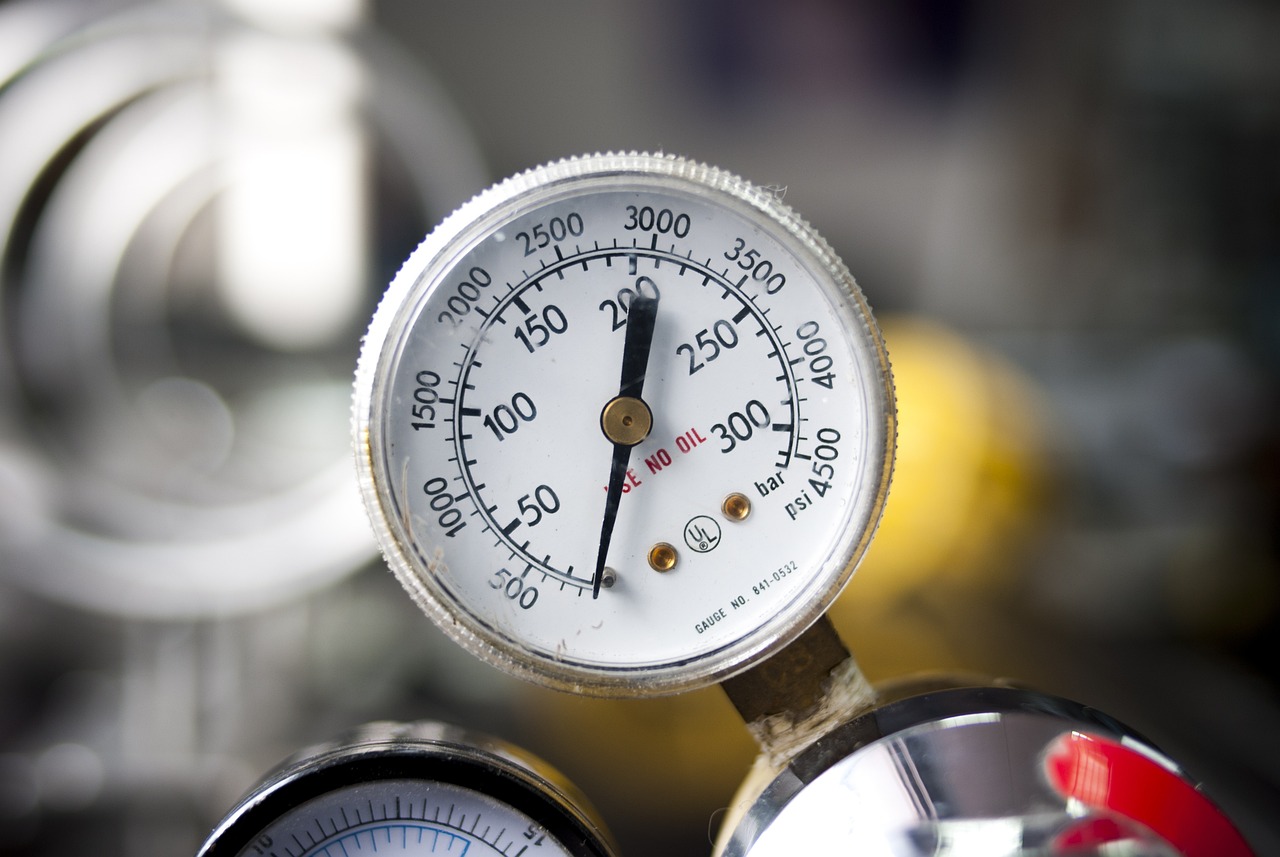Bar to Psi Conversion - Convert Psi (psi) to Bar (bar).
Result:
Our Bar to Psi converter is the perfect tool to quickly convert pressure from bar to psi or vice versa. On this page, we'll talk about how to convert bar to psi, understand how to use this bar to psi converter, and answer some common questions about this conversion.
What are Bar and Psi?
Pounds per square inch (psi) is a pressure unit based on the avoirdupois pound-force. One psi is the pressure caused by one pound-force of force acting on a square-inch surface area. Psi is used in various systems to measure pressure and stress.
A bar is a metric pressure unit equal to 100,000 pascals (105 Pa). Although not an SI unit itself, bar is widely used, especially by meteorologists and engineers when pascal values would be too large.
Why Convert Between Bar and Psi?
While the metric system is widely used in science, U.S. customary units like psi are still common in some industries like automotive and construction. Being able to convert between bar and psi is useful when you need to understand pressure readings using different unit systems.
Understanding Pressure Units
A bar measures pressure as the force applied perpendicular to a surface, with 1 bar equaling 100,000 pascals. Atmospheric pressure at sea level is very close to 1 bar.
Psi (pounds per square inch) measures the pressure exerted over one square inch of area. It is defined as 1 pound-force acting on 1 square inch. Atmospheric pressure at sea level is around 14.7 psi.

Other Pressure Units
Some other common units used to measure pressure include:
- Pascal (Pa) - The SI base unit for pressure
- Atmosphere (atm) - Approximately equal to air pressure at sea level
- Millimeters of mercury (mmHg) - Used for measuring low pressures like blood pressure
Converting Bar to Psi
To convert from bar to psi, you multiply the bar value by a fixed conversion factor:
pressure in psi = pressure in bar x 14.50377
For example, if the pressure is 32.5 bars:
pressure in psi = 32.5 bars x 14.50377 = 471.3725 psi
Bar to Psi Conversion Rate
The conversion rate of 14.50377 accounts for the differences in unit definitions between bar and psi.
Converting Psi to Bar
To convert from psi to bar, you divide the psi value by the conversion factor:
pressure in bar = pressure in psi / 14.50377
For example, to convert 232 psi to bar:
pressure in bar = 232 psi / 14.50377 = 15.99584 bar
How to Use This Pressure Converter
Using this converter to switch between bar and psi units is simple:
- Enter the pressure value for either bar or psi in the specified field.
- Click on the convert button.
- The result will be shown in the second field
This allows you to quickly convert pressures between bar, and psi!
Accuracy and Significant Figures
When converting, make sure to pay attention to significant figures and round appropriately. Most pressure measurements only require 2-3 significant digits.
Applications in Different Industries
Pressure units and conversions are important across many industries including:
- Automotive (tire pressure, engine systems)
- Aviation (altitude pressure readings)
- Oil & Gas (well pressures)
- Heating & Cooling (HVAC systems)
- Science & Research Labs
Other Similar Calculators
Check out other calculators that are similar to this one.
FAQs
Is bar or psi a larger unit?
Psi is the larger unit. 1 bar = 14.50377 psi
At what pressure is bar = psi?
The units are equal at around 0.0689 bar = 1 psi.
Why is there a conversion needed between metric and U.S. units?
The units have different definitions based on their origin in different measurement systems.
How much is 1 bar in psi?
1 bar = 14.50377 psi. This conversion rate is used to convert from the metric bar unit to the U.S. customary psi unit.
What is 2.5 bar in psi?
2.5 bar = 36.25943 psi. To convert, we multiply the bar value (2.5) by the conversion factor of 14.50377.
How do I convert 35 psi to bar?
35 psi = 2.41313 bar. To convert from psi to bar, we divide the psi value (35) by the conversion factor of 14.50377.
What is 100 bar in psi?
100 bar = 1450.377 psi. For higher bar values, we simply multiply by the same 14.50377 conversion factor.
How do I convert 100 psi to bar?
100 psi = 6.89476 bar. Dividing 100 psi by 14.50377 gives us the bar equivalent.
What is 150 psi in bar?
150 psi = 10.34214 bar. Again, we divide the psi value (150) by 14.50377 to convert to bar.
How much is 2.2 bar in psi?
2.2 bar = 31.90829 psi. Multiplying 2.2 bar by 14.50377 converts it to the psi equivalent.
What are 2.0 bar and 2.4 bar in psi?
2.0 bar = 29.00754 psi
2.4 bar = 34.80905 psi
The conversion from bar to psi uses the same 14.50377 factor for any bar value.
How much is 10 bar in psi?
10 bar = 145.0377 psi. Multiplying 10 bar by 14.50377 converts it to the psi equivalent.
How do I convert 36 psi and 40 psi to bar?
36 psi = 2.48312 bar
40 psi = 2.7569 bar
Dividing the psi value by 14.50377 converts psi to the equivalent bar value.
What are 50 bar in psi and 50 psi in bar?
50 bar = 725.1885 psi
50 psi = 3.44738 bar
Use the 14.50377 factor to convert between bar and psi in either direction.
How do I convert 1 psi to bar?
1 psi = 0.068947 bar. Dividing 1 psi by 14.50377 gives the bar equivalent of around 0.069 bar.
What are 20 psi and 33 psi in bar?
20 psi = 1.37895 bar
33 psi = 2.27527 bar
Divide the psi values by 14.50377 to find the corresponding bar values.
Summary
Converting between bar and psi is straightforward using the fixed 14.50377 conversion factor. Understanding pressure units is crucial across automotive, engineering, scientific research, and many other fields. With examples, formulas, and online tools, you can easily convert pressure readings as needed.
Find Calculator
Popular Calculators
Other Calculators
